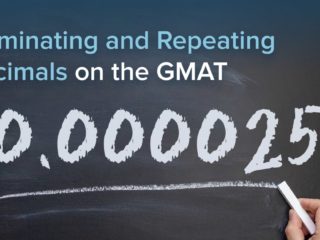| Getting your Trinity Audio player ready... |
Wondering whether there is a correlation between your IQ and your GMAT score?
Quick Answer: Not exactly. There may be some correlation between GMAT scores and IQ. Both measure cognitive abilities such as reasoning and problem-solving. However, the tests are far from identical, and they have very different goals. The GMAT is specifically designed to assess skills relevant to business school success. On the other hand, IQ tests aim to measure general intelligence across broader domains.
It’s worth noting that while high GMAT scores may indicate strong cognitive abilities, they don’t necessarily require a high IQ. Factors such as test preparation and familiarity with the question formats can greatly influence GMAT performance.
Read on to learn more about GMAT vs. IQ scores and how to make the most of your stats.
Here are the topics we’ll cover:
- Does the GMAT Measure IQ?
- GMAT and Cognitive Ability
- How to Do Well on The GMAT Regardless of IQ
- Key Takeaways
- Frequently Asked Questions (FAQ)
- What’s Next?
First, let’s look at whether GMAT scores can be correlated to IQ.
Does the GMAT Measure IQ?
Is the GMAT an IQ test? Well, no. The GMAT measures something far more specific. Unlike IQ tests, which are supposed to measure intelligence across a number of applications, the GMAT’s focus is skills useful for business school.
For instance, IQ and GMAT may both measure the ability to reason through problems. However, the GMAT wants to test your ability to reason in ways relevant to MBA programs or professional careers. For this reason, there is no particular IQ required for a high GMAT score.
A high GMAT score could indicate high intelligence. Alternatively, a high score could result from average intelligence and plenty of dedicated GMAT preparation. Thus, using a GMAT-to-IQ conversion chart to predict one score with the measure of the other is unreliable. A GMAT-to-IQ calculator doesn’t factor in important data, such as prep time, that varies widely between testers.
KEY FACT:
The GMAT is not an IQ test, but a test designed to predict success in business school.
For more information on How to Measure GMAT Ability, check out our guide.
How to Measure IQ
If you want to measure your IQ, there are easier, cheaper, and more accurate ways to do so than taking the GMAT.
If you want to measure your IQ, the U.S. military developed the Army General Classification Test. This IQ test is considered accurate, and it only takes 40 minutes. You can take the Army General Classification Test and get a standard deviation of your score for free.
At that point, it’s easy to calculate your score. The mean is 100 and the standard deviation is 15 points. For instance, my score was 2.2 deviations above the mean, so it would be 100+(2.2*15) = 133.
Now that we know the GMAT isn’t an IQ test, let’s look at what skills it does require.
GMAT and Cognitive Ability
The GMAT measures cognitive abilities in contexts that are common in professional settings or B-school. A higher IQ may make learning the reasoning and logic necessary for a great GMAT score easier. It may also give testers a false sense of security. Don’t fall into the trap of using a high IQ as an excuse to skimp on exam-specific prep.
GMAT prep can improve cognitive abilities because it’s a form of cognitive training. It requires you to memorize certain things, such as rules and mathematical formulas. Exam prep also develops attention span. The GMAT is over 2 hours long, with one 10-minute break, so it demands focusing for long periods.
Additionally, the GMAT is an exercise in problem solving. It’s hard to do well on the GMAT without having good problem-solving skills. Learning to work through problems teaches you to find solutions based on given information, which is a valuable ability.
KEY FACT:
GMAT prep requires training skills such as memorization, focus, and problem-solving that can improve cognitive ability.
We’ve seen what benefits GMAT prep can offer us. Now let’s look at how anyone, regardless of their IQ, can do well on the GMAT.
How to Do Well on The GMAT Regardless of IQ
The only reliable way to do well on the GMAT is to understand the GMAT. There isn’t any inherent ability that will let you skip developing that understanding.
The timeline required to get a good grasp of the GMAT will vary. A prep program that takes one student 3 months to complete may take another student 9 months. This can be due to many factors, including but not limited to:
- professional experience
- academic experience
- familiarity with the topics tested
- time available to study
- energy available to study
- learning speed
- family or social obligations
KEY FACT:
There are many variables that can impact your GMAT preparation timeline.
Here are 4 tips for GMAT prep that will benefit anyone, no matter their starting point or IQ.
Tip 1: Stay Focused
Every student has a unique journey. It’s important to not compare yourself to others. There could be many reasons why their prep journey was quicker or easier than yours. Also, worrying about the performance of other students doesn’t help your score. Stay focused on your own journey. Prioritize the topic in front of you and avoid getting distracted. Don’t worry about anyone else’s timeline.
TTP PRO TIP:
Focus on your own test goals and avoid distractions.
Tip 2: Stay Positive
While you’re staying focused, don’t forget to stay positive. Studying, especially for those who are out of practice, isn’t always easy. There are good days when things come easily. There are also more discouraging days when topics aren’t as simple or intuitive.
Mindset can make a surprisingly big difference in both studying and test-day performance. Having a positive mindset can make studying more enjoyable and effective. It can also help with test anxiety.
TTP PRO TIP:
Cultivate a positive mindset for a better studying and testing experience.
To set yourself up for mindset success, check out our guide on How to Stay Positive While Studying for the GMAT.
Focus and positivity are both helpful for cultivating the motivation to learn, but how you respond to challenges is a big indicator of success.
Tip 3: Get Excited About Challenges
GMAT prep will come with challenges. The topics you find most difficult may be different than the topics others struggle with. Even so, every student will run into at least some very challenging topics. How you view challenges can drastically affect how they impact you.
When you encounter something you don’t know how to do, how does that feel? Does it scare you? Or is it fun to see that there are still things to learn? Try to focus on opportunities for growth instead of perceived limitations. Your brain is very impressive. It can do a lot of things, but only if it’s given the chance.
Use the GMAT to practice getting excited about new challenges instead of worrying about them. Don’t let yourself give up when you run into an obstacle. Look for new or better ways to navigate these obstacles until you find one that works for you.
TTP PRO TIP:
Reframe challenges from obstacles to opportunities to minimize stress and maximize growth.
Tip 4: Plan Ahead
The best mindset in the world will make a big difference in your performance, but it can only get you so far. The rest of your success comes from planning ahead.
Familiarize yourself with the resources available and build a study timeline. This is a starting point. It will probably require some tweaks along the way. Tweaks aren’t a bad thing. Life doesn’t always go as expected. The first 3 tips we discussed will help you navigate the unexpected parts of your prep journey.
One of the best ways to get a feel for the GMAT is official mock tests. They allow you to practice with official questions and within the appropriate time constraints. This GMAT Practice Test Strategy guide can help you get the most out of each mock.
Another important way to plan ahead is to factor multiple GMAT attempts into your application timeline. There are lots of things that can prevent you from doing your best on test day, even if you’ve prepared diligently. You may catch a cold, have car trouble and have to rush to get to the exam center, or just not feel confident that day. Building in time to retake the exam once (or twice) can give you peace of mind, even if you don’t end up needing to retake it. It’s better to have too much time than not enough.
TTP PRO TIP:
Leave yourself with plenty of time to retake the GMAT in case something unexpected harms your initial score.
Tip 5: Improve Where You Can
Your GMAT score isn’t a direct reflection of your IQ because it wasn’t made to be. The GMAT requires preparation and adaptability. While intelligence may influence your performance, the GMAT score and IQ relationship isn’t linear. GMAT success hinges more on focus, perseverance, and effective studying than on innate ability.
The good news is that these are 3 things you have a lot of control over. IQ tests are supposed to test intelligence, and that’s a much more difficult trait to change. People typically don’t study for IQ tests, but you shouldn’t skip studying for the GMAT.
Invest your energy where it will make the biggest difference. Try prioritizing focus, positivity, reframing challenges, and good planning, and see how your test prep improves.
TTP PRO TIP:
Focus on improving the skills that you have the most control over for maximum impact.
Key Takeaways
- IQ is an estimate of general intelligence that has a variety of applications.
- The GMAT is not an IQ test.
- While there may be some GMAT percentile and IQ correlation, GMAT performance primarily depends on external factors such as preparation time.
- GMAT prep can improve cognitive ability by training skills such as memorization, focus, and problem-solving.
- Everyone will have a unique test prep timeline that’s influenced by many factors, such as previous experience, learning speed, and family obligations.
- There are many skills that are easier to improve than IQ, and they can set you up for a great GMAT score. These include:
- focus
- positivity
- getting excited about new challenges
- planning ahead
Frequently Asked Questions (FAQ)
Is the GMAT an accurate measure of intelligence?
The GMAT is not designed to measure intelligence. It’s designed to measure readiness for business school. While there may be a GMAT and intelligence correlation, the exam is heavily influenced by how much preparation you put in before taking it.
How is GMAT performance different from IQ test results?
IQ tests estimate general intelligence. The GMAT measures GMAT-specific skills. You aren’t supposed to study before taking an IQ test. You absolutely should study before taking the GMAT. A person with a high IQ won’t automatically outperform someone with a lower IQ on the GMAT. The person who prepared diligently with appropriate GMAT materials will get a higher score than someone who didn’t prepare adequately.
Can studying for the GMAT improve cognitive ability or just test scores?
Studying for the GMAT requires training in focus, memorization, and problem-solving. Those are 3 common forms of cognitive training. Cognitive training is training designed to improve cognitive ability.
This overlap means that GMAT prep can do more than simply improve your test score. It can also challenge your brain and develop useful skills that are important in business school and beyond.
What’s Next?
Now that you’ve learned about the difference between the GMAT and IQ, you may want to check out How to Learn GMAT Concepts and Skills.
If you’ve already taken the GMAT but you’re unsure about your score, consider checking out our guide: Should I Retake the GMAT?



